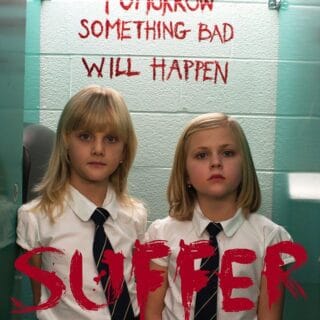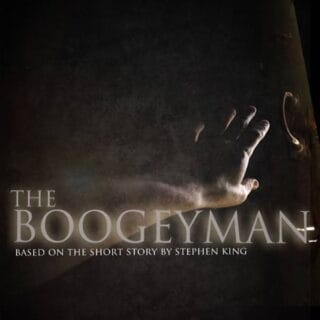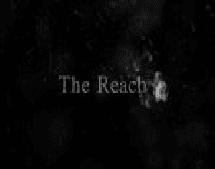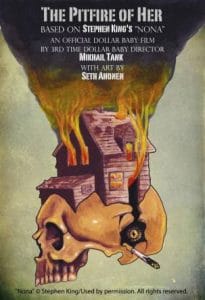Stephen King Short Movies Latest posts
Title: Suffer (2016) Runtime: 15′Director: Filip TerleckiScript: Filip TerleckiCast: Carmelo Giardina, Gloria Adora, Astrida Auza, Donald G. Baker, Judi Baldwin, Patrick Marlon Bender, Justyna Bochanysz, Filip Cehic, Katarina Cehic, Stela Cehic, Rain Clews-Fehr, Zander...
Title: Premium Harmony (2014) Runtime: 13′Director: Daniel J. Algarin & Toby LouieScript: Toby LouieCast: Joe Egender, Stefanie Black, Kevin Mukherji, Diane Sellers, Charles C. Stevenson Jr, Alissa Dean, Maciek Sokalski, Deep Rai. Imdb | Twitter | Crowdfunding Sometimes marriage...
Title: The Boogeyman (2014) (UK)Runtime: unknownDirector(s): Stephen Hyams(Script-)writer(s): Stephen HyamsProducer(s): Liam SwannCast: Cyd Casados, James Cosmo, Jack Hollington, Miltos YerolemouAdditional Crew: Michael Murray, Owen Ward, Jayne Van Zandt, Martin Lejeune Imdb | Facebook |...
Title: The Reach (2014/Cancelled) (USA)Runtime: unknownDirector(s): Götz Froeschke(Script-)writer(s): Götz FroeschkeProducer(s): Götz FroeschkeCast: unknownAdditional Crew: unknown Facebook #2 An sick elderly women hears the voice of her deceased husband and he tries to convince her...
Title: Lament paranoika (2014) Runtime: 10′Director: Darek KocurekScript: Darek KocurekCast: Animation Web | Facebook Two girls named Pamela and Rebecca wake up after a night of heavy drinking and get paronoid about what they got...
He wrote the script in Joseph T. Kramer’s Role Play Dollar Baby Film. SKSM: Could you start with telling me a bit about yourself? Who are you and what do you do? Patrick Thompson: My...
Title: The Boogeyman (2014/Cancelled) (USA)Runtime: unknownDirector(s): Timothy Woodward jr.(Script-)writer(s): Timothy Woodward jr.Producer(s): Timothy Woodward jr.Cast: unknownAdditional Crew: unknown Facebook Dr. Harper and his family, who become the perfect target for the Boogeyman due to their...
He is the man behind The Things They Left Behind Dollar Baby Film. SKSM: Can you introduce yourself to our readers? Stéphane Valette: My name is Stephane Valette, I’m 28 years old and I...
He is the man behind The Things They Left Behind Dollar Baby Film. SKSM: Can you introduce yourself to our readers? Guillaume Heulard: My name is Guillaume Heulard, I’m 26 years old and I...
Title: The Pitfire of Her (2014) (USA)Runtime: 6′Director(s): Mikhail Tank(Script-)writer(s): Mikhail TankProducer(s): Mikhail TankCast: AnimationAdditional Crew: Seth Ahonen Web | Imdb In his mind, a young man sees an idyllic vision of a love...























